The home of 22-year-old Darren Ng’s venture, SGVenusFlytrap, is a deceptively stunning snare for unsuspecting critters. Whereas other plots may contain ornamental plants or fruits and vegetables, Mr Ng’s garden comprises an assortment of carnivorous plants, their scarlet hues a stark contrast standing against the typical greens of plants. It is a lair insects might prefer to avoid, for while the services of some may prove useful in pollination, others may find themselves flying into a deadly trap. A Venus flytrap, that is.
But while Venus flytraps are the namesake of his community and business, they are far from the only threat. A stray fly could just as easily fall into the murky depths of a pitcher plant, whose elongated and tapered cylinder restricts the movements of its prey, leaving it to drown in a cauldron of digestive liquids. Or, a trusting beetle looking for a tasty nectar treat may instead find itself trapped in the sticky tendrils of a sundew, to be entangled and consumed.
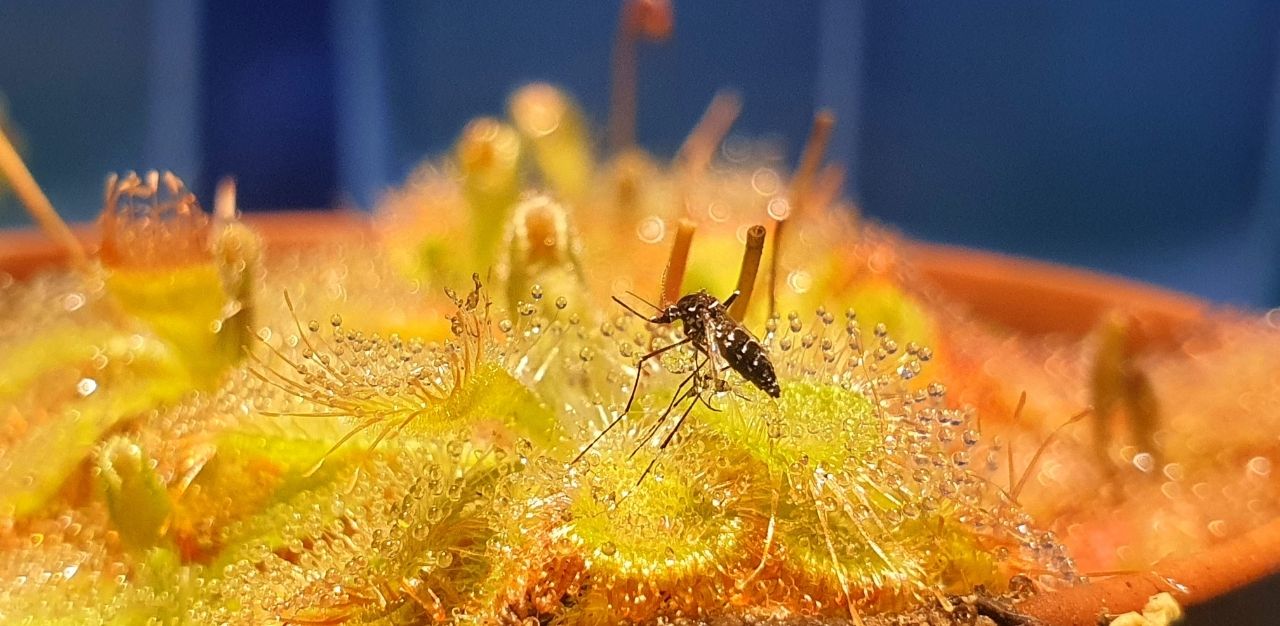
The sinister nature of these plants are precisely what drew a curious Mr Ng, when he first saw them on a page of his primary three science textbook. What he did not expect, however, was for a childhood interest to spark his budding business today.
At the age of 14, Mr Ng discovered plant tissue culture technology, where plant tissues or cells are harvested and grown under laboratory conditions to enable the rapid production of plants. Intrigued by the process, he reached out to his secondary school science teacher, who let him use the school’s facilities for his experiments.
“I first came across the technology when I was surfing the net, and learned that plant tissue culture was used in the cultivation of crops, such as tobacco, orchids and many other plants,” he explains. “But I hardly saw people applying this technology on carnivorous plants at that time.”
His research first began with plant tissue regeneration, a phenomenon that allows plant tissue to recover and regenerate after they have been damaged or injured. Using the only plant he owned at the time, a Venus flytrap, Mr Ng’s experiments led him to make a serendipitous discovery – the Venus flytraps he was culturing were adapting, through the batches, to Singapore’s tropical climate.
“We created a tropicalised version as a by-product, purely by accident,” he exclaims.
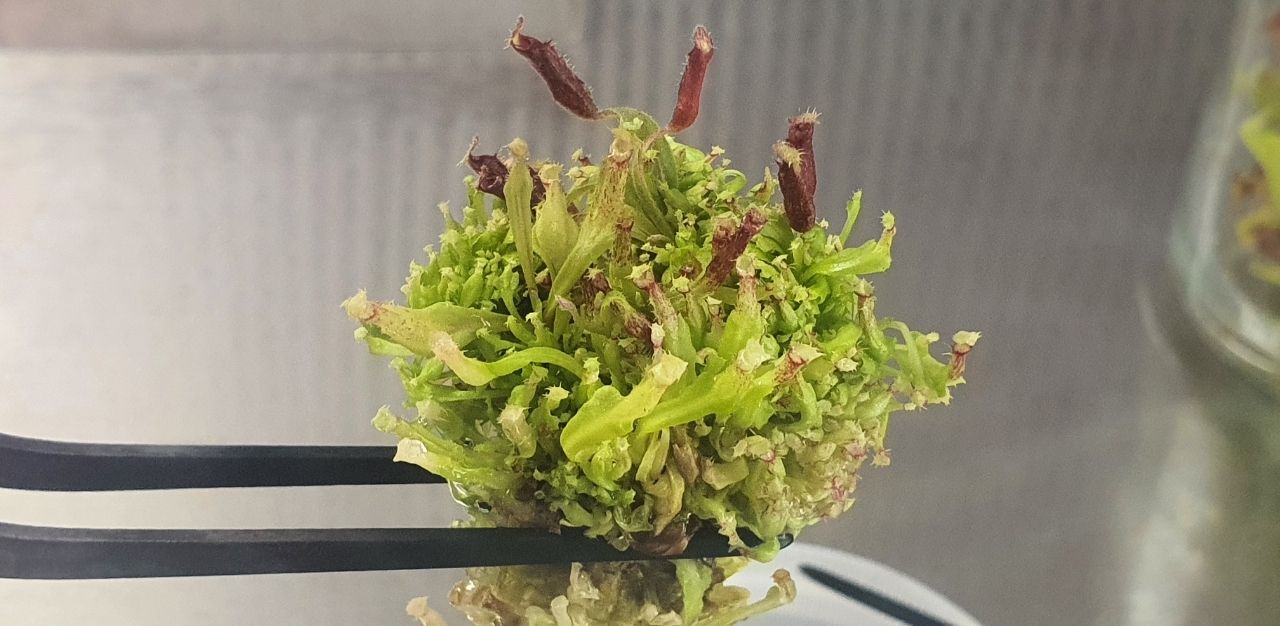
Inspired, Mr Ng continued to pursue this line of research, creating Venus flytraps that are suitable for the layman in Singapore to grow without specialised set-ups required by typical traps, which are temperate plants.
His research eventually piqued the interest of other carnivorous plant keepers, who came onboard the project. Together, they created the SGVenusFlytrap Facebook community group in 2016, where they share resources, plant growing tips, and successful plants and habitats that they have cultivated. The group, which started with only 10 members, has grown to 4,000-strong under Mr Ng’s charge, prompting him to establish a viable business plan to sustain his research and the community.
Today, SGVenusFlytrap is both a community and a business.
As a community, they continue to research and develop tropicalised versions of carnivorous plants, while educating interested growers on how to successfully cultivate these plants.
On the business front, Mr Ng sells these plants, while also offering educational workshops on carnivorous plants and the biotechnology behind them. Besides which, curates and creates unique terrariums with carnivorous plants that can be kept in an indoor environment, without direct sunlight.
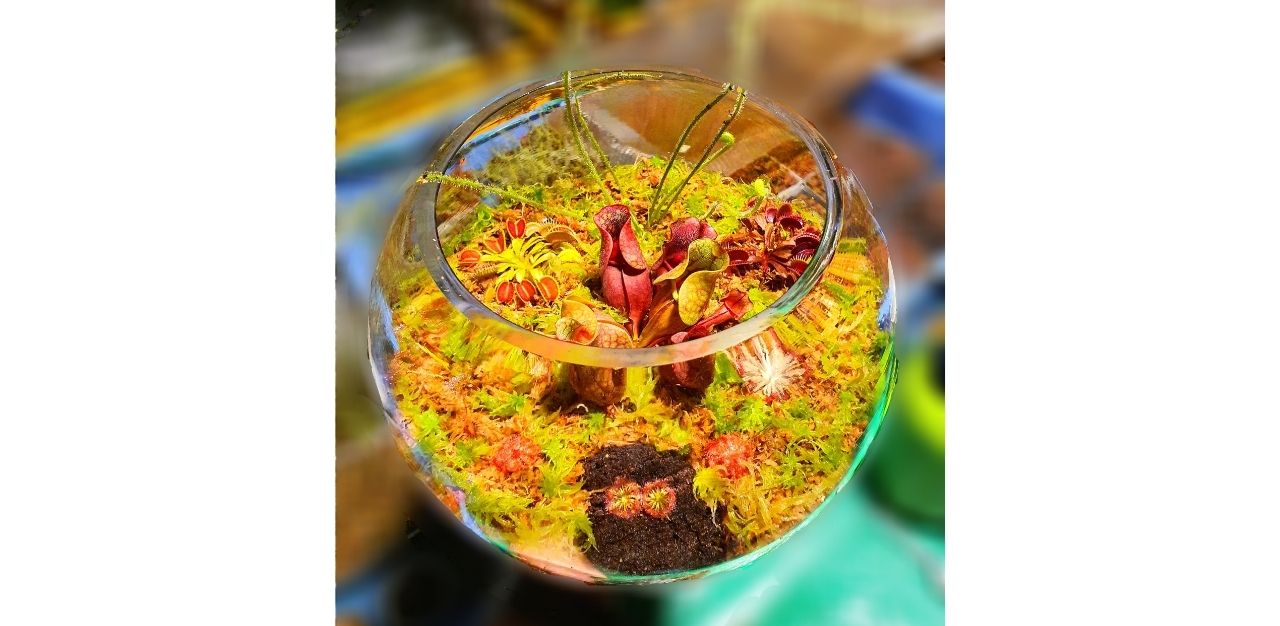
TheHomeGround Asia pays a visit to the community garden of SGVenusFlytrap and sits down with Mr Ng, who shares his love and fascination for these plants, the challenge he finds in his job (which he juggles as an undergraduate studying business management), and his motivation and passion as a student-entrepreneur with green, snappy fingers.
(NOTE: This interview has been edited for clarity and length.)
Darren Ng: I think carnivorous plants are really cool biologically. My favourite thing about them is the fast-moving action of a Venus flytrap. That’s something that exceeded my knowledge when I was in primary school, whereby I always thought that plants cannot really move. But being able to see them snapping in less than a second really amazed me like, ‘Wow, how can even a plant do that?’
And even though many may think that carnivorous plants need to consume insects to survive, they can grow perfectly well without it. Insects are more like a vitamin pill. For us humans, if we don’t eat any vitamin pills, we can still grow pretty well and lead pretty good lives. But what happens if we don’t take in carbohydrates, and we are not given three meals a day? We may suffer. Same goes for plants. Sunlight is their main source of energy, rather than insects. They contain chlorophyll, so they can still photosynthesise.
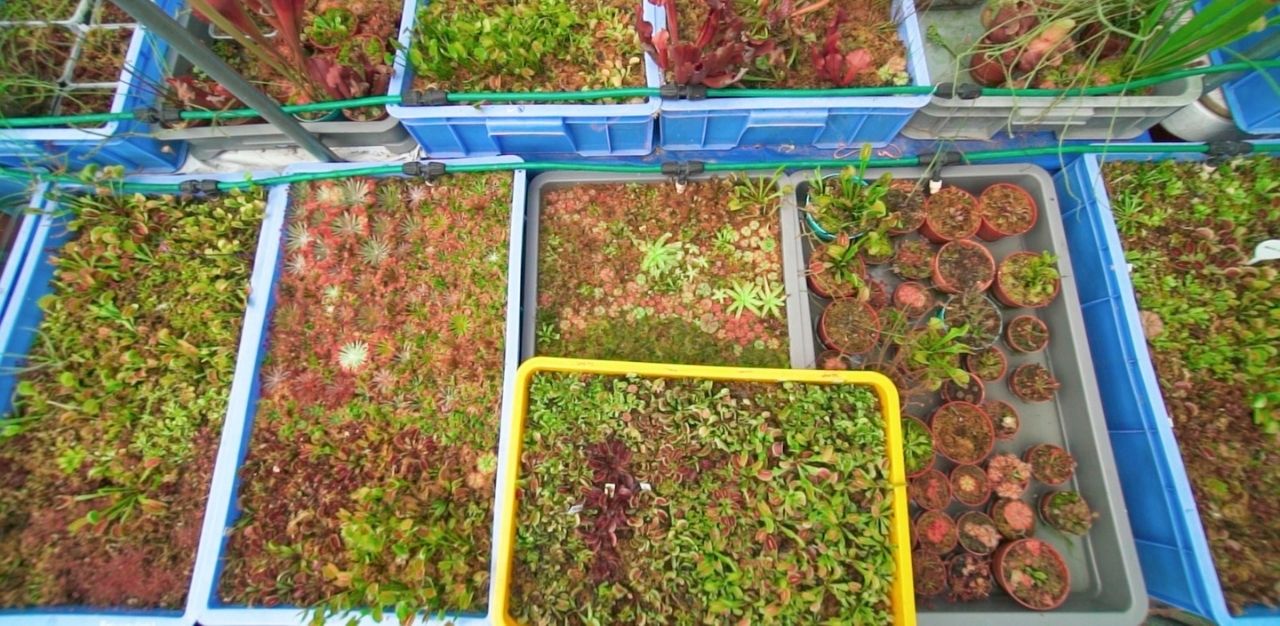
However, in the past, carnivorous plants were one of the hardest plants to grow in Singapore because they require a temperate climate to thrive. When bringing a temperate plant to tropical weather, they either don’t thrive well, or you have to be hardcore hobbyist with suitable air conditioning and grow light setups to cultivate them. I saw that the community would benefit greatly if these plants were much easier to be kept in Singapore weather, which is why I continued my research on plant tissue culture, to develop carnivorous plants that are adapted to Singapore’s tropical weather.
THG: When did you realise that you had actually created something new?
DN: I had been observing how one of my Venus flytraps’ leaf was regenerating from an open cut that I inflicted, and realised that the leaf had not just healed, but had actually regenerated into a baby Venus flytrap. As time went by, I was surprised to find that about 30 per cent was able to thrive well in a non-air conditioned environment. With that revelation, I continued to read up on the various biological mechanisms to understand what had happened on a molecular level. Soon, I confirmed the phenomenon, and with some changes to the research methodology, I managed to raise the success rate of this new tropicalised version to 96 per cent.
Today, the research is angled slightly differently. What we are investigating is the changes happening on the molecular level of these plants, and how gene expression causes the plant to change in the way that we have originally observed. Currently, we know that they are able to grow well in hot weather, but we do not exactly know what changes on the genetic level.
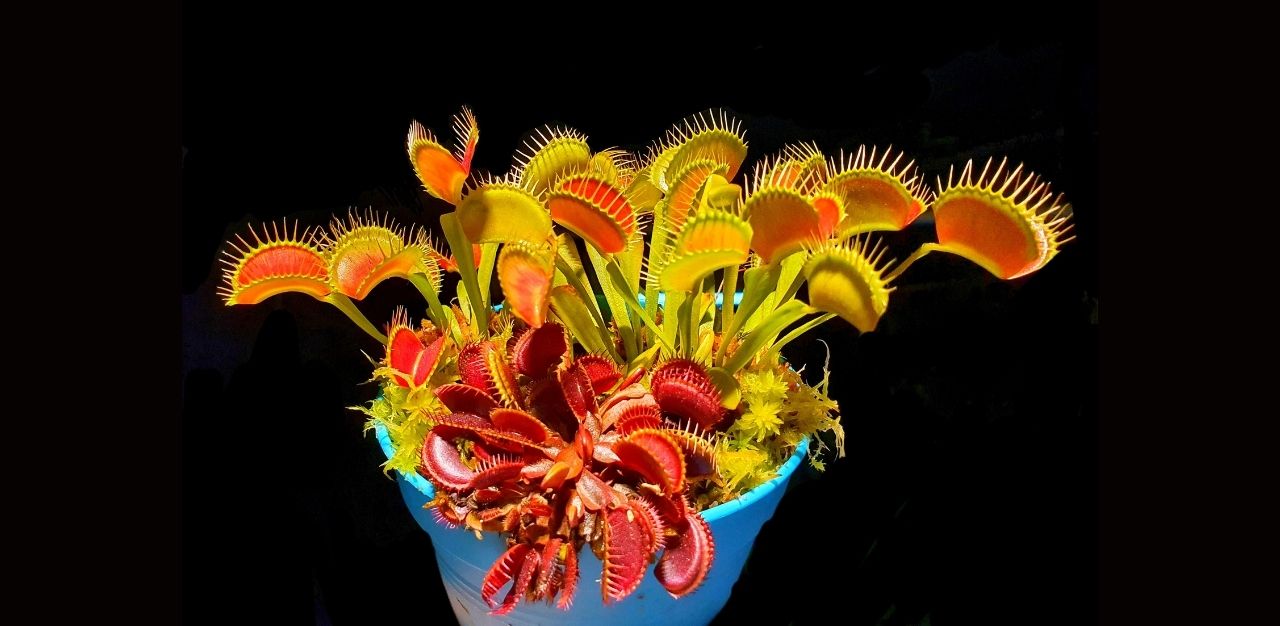
THG: It must have been quite exciting to realise you have created something new as a young teenager! Can you share that moment of success?
DN: The feeling of success was actually very short-lived, because after the success of the research work, we were faced with a slightly more challenging problem: more and more of my friends wanted to grow these plants [Venus flytraps]. The initial success was just on a paper document. We can develop this plant, but being able to grow them at scale to meet the community request is the next problem we face. Many of us had come together to make this work, and now, we all want to be able to grow something for ourselves.
That’s how the SGVenusFlytrap community first started – as we were trying to think about a more sustainable way of cultivating these plants.
THG: Tell us a bit more about the SGVenusFlytrap community. When you first started, it was only with 10 members. What has the journey been like?
DN: When we first started research on plant tissue regeneration, the change in plant behaviour was not something supported by many, especially the pioneer members. At that point of time, being able to change plant behaviour is something [seen as] almost impossible. But as our community grew, we showcased that as a community, we can achieve greater things than a small, one-person team.
With the success rate increasing over the years and our community building up, there are more and more people who are successfully growing these plants. And when the members bring back their overgrown plants to let us take a look, the satisfaction that they show or they achieve by growing these plants, is also the satisfaction I get from setting up this group; I see that the community is benefiting the new members, and that keeps me and my whole team going.
THG: The community has also decided to establish a physical garden. How did that come about?
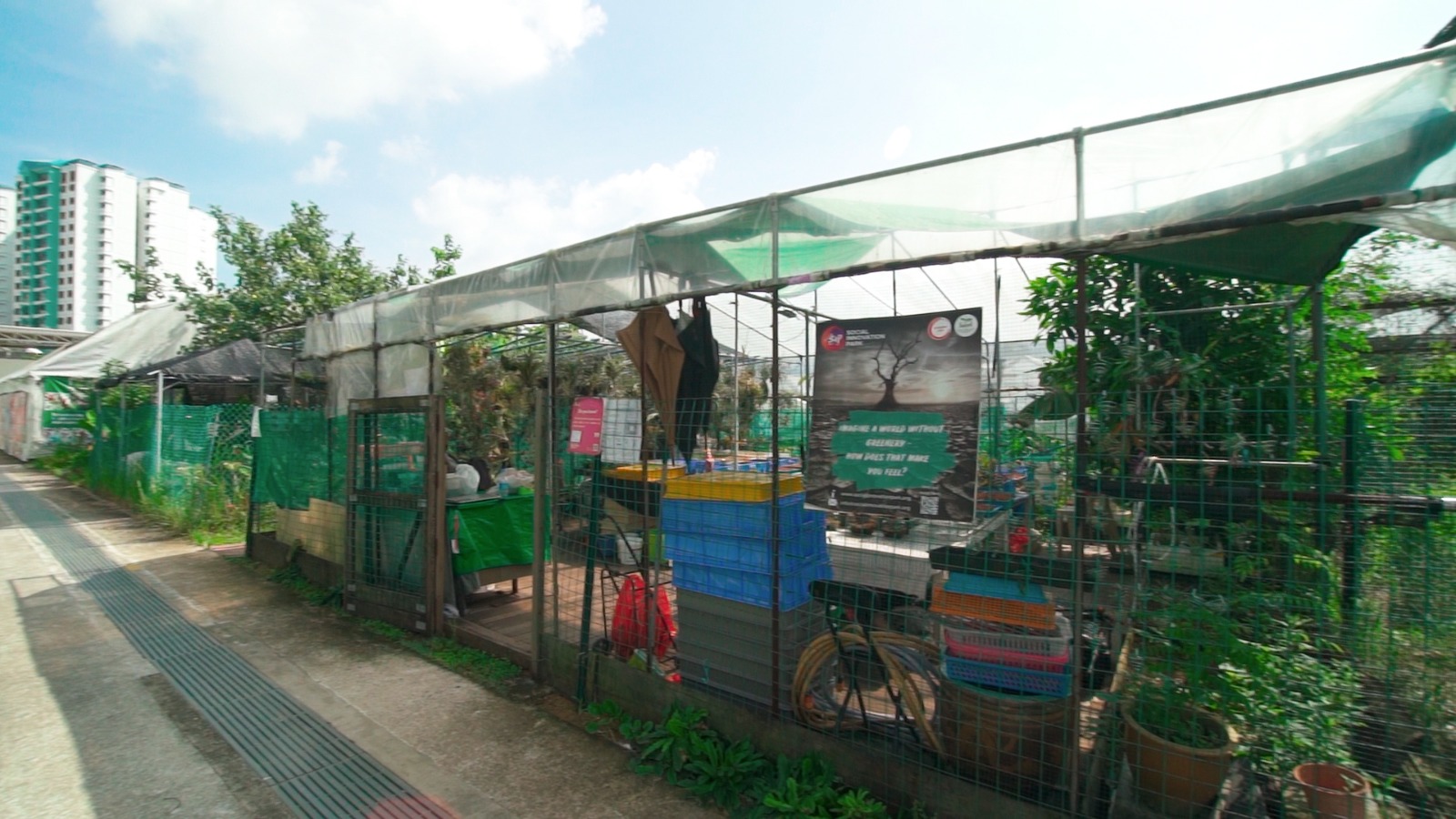
DN: We decided to establish a physical community garden at Punggol because we faced difficulties when members were trying to come to my house to visit the plants. Now, with about 4,000 of us, coming to my house to visit is a challenge. That’s why we decided to set up a physical place, where our members can pop by and take a look at the full range of carnivorous plants we grow. With a community garden, it’s easier for us to educate and teach them on the spot as well.
THG: Are there any plants in this garden that are special to you?
DN: The oldest plant in the gardens is nine years old. It was the first one that actually survived under my care. I didn’t expect that this plant would follow me for so long, generation after generation, but it was something pretty amazing as it witnessed the progression of the community. The longest Venus flytrap in particular is across the whole community, because they got cloned from the same plant. It has divided itself so greatly.
THG: Now that you have established a thriving community and garden, you’re looking to move into a business. What inspired that change?
DN: The main reason why we are trying to venture into a business is because of the sustainability of this community. In the past, community members only covered material costs. In order for long-term sustainability, in terms of being able to get permanent members to help out, we will require a more sustainable model. I see a business as a potential way we can allow this community to progress into the future.
If one day we had to close this community, I believe that a lot of members would be quite disappointed. We had come together to build it, and it didn’t last.
THG: You’ve been doing this for about a decade now, what has been the most memorable moment thus far?
DN: When we first started out, we had very minimal results, so when we first shared online, we faced a lot of experienced growers who believed that what we were doing was impossible. They didn’t believe that these plants’ behaviour can change with biotechnology. At that point of time, I really felt quite discouraged, especially when in school, teachers were very friendly and encouraged us a lot. But when it comes to reality, it’s the first time I met a setback. But when I faced that emotionally, a lot more members actually came in to encourage me, and guided me to change my mindset about things.
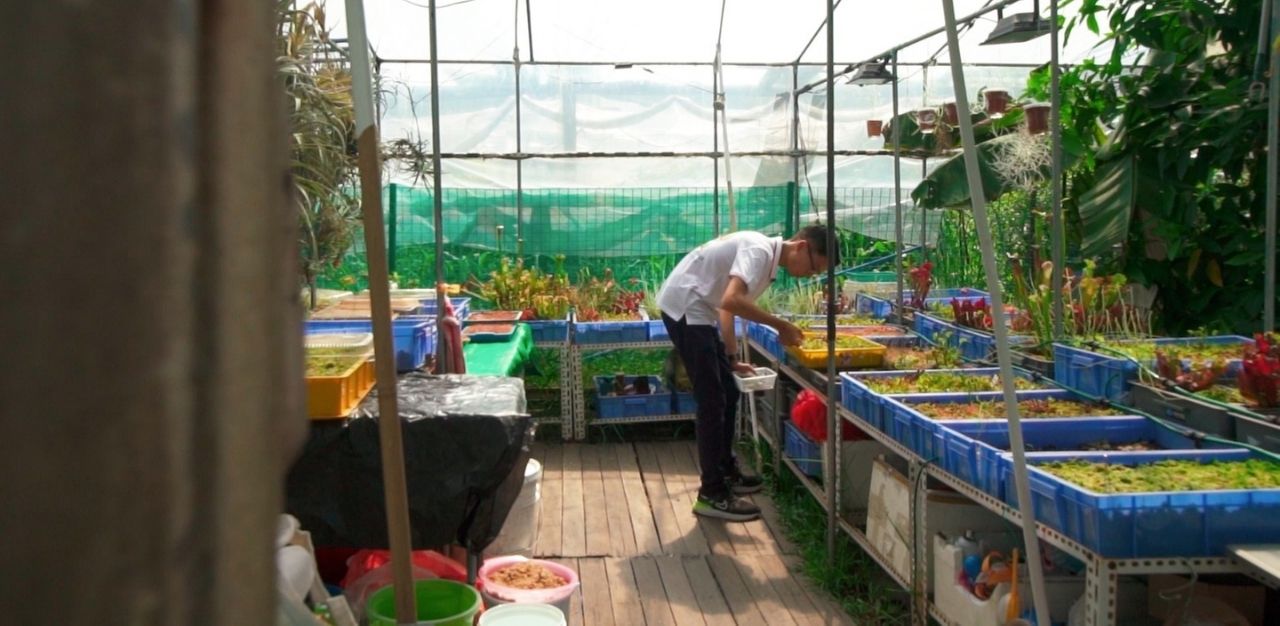
One of the most memorable quotes a member shared with me was: ‘You have to believe in yourself, before others will believe in you.’ I learned that we should focus more on people who support us, and then we move forward because of these people.
THG: You talked about the struggles you faced in the beginning, but what about the triumphs? What has been the best thing about running this community?
DN: I think my favourite part is when I interact with members, especially when they come down to the garden to learn. While they are learning how to grow these carnivorous plants from me, I’m actually learning a lot of life values from them at the same time. So through the day-to-day interactions, it really opened up my mind because of the number of people I speak to.
THG: What about your greatest takeaway?
DN: The greatest takeaway is that failure is something unavoidable and it should be something expected. Through this 12-year journey, we faced multiple and endless failures, but it’s actually the progress or the process of how to accept the failure and how to make changes, coming up with solutions, to ensure that we overcome all these obstacles. I believe that to be successful, we should have constant improvement over time.
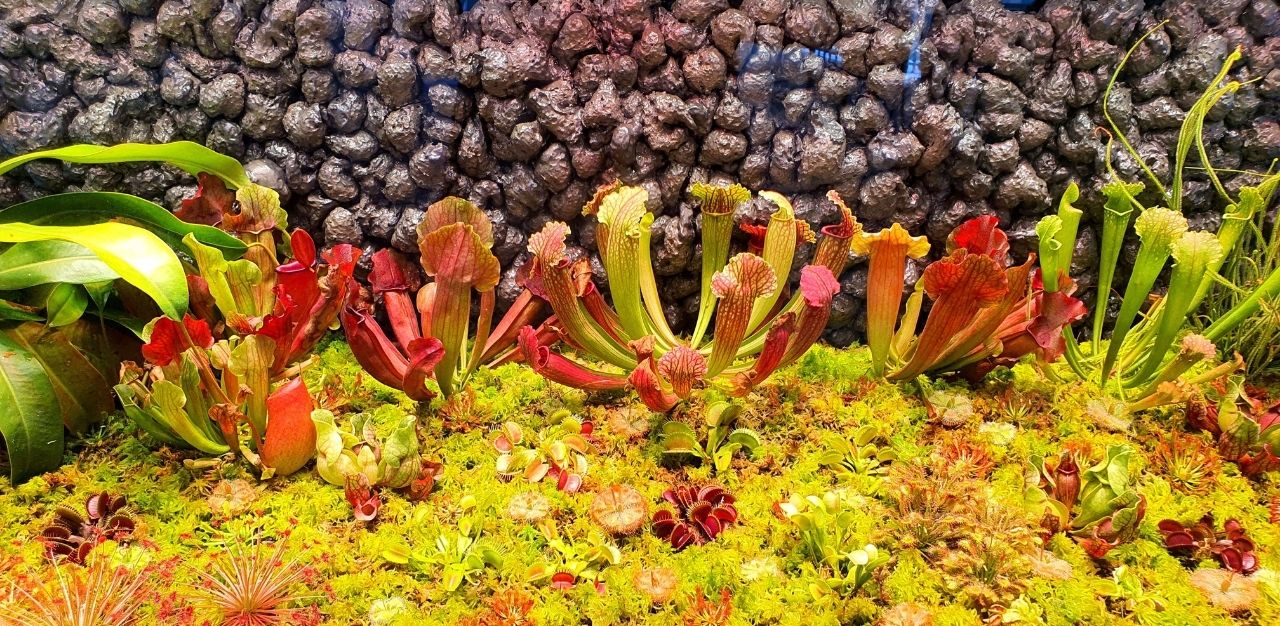
THG: Moving forward, where do you hope to bring your research next?
DN: On a personal level, the passion of growing these plants is still as strong as when I first started out. I’m still constantly researching how to grow varieties from even cooler temperatures. What we’re growing now is just the tip of the iceberg. I want to try converting these challenging plants to become an easier plant for my friends and members. I’m referring specifically to the highlanders, which grow in very cool temperatures of just over 10 degree Celsius. They’re beautiful, and very exotic. That’s part of the greater challenge ahead that I’ll be facing.
Join the conversations on TheHomeGround Asia’s Facebook and Instagram, and get the latest updates via Telegram.














